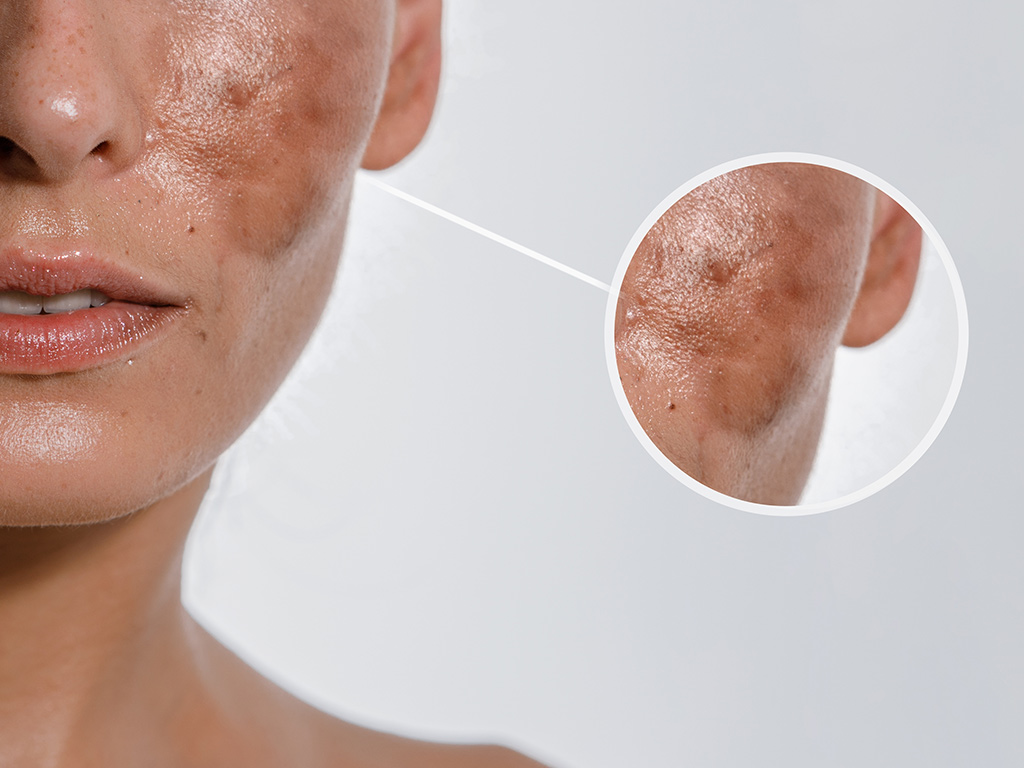
Have you ever been happy with your skin’s recovery after noticing fewer pimples than you did a few days ago? It’s a marvellous feeling of wanting to check your own skin out in the mirror without being upset about breakouts.
And then lo and behold, if not acne, its successor, hyperpigmentation, takes its place! But there’s no need to panic – just read further to know everything you need to understand about acne hyperpigmentation and why it happens.
Post-inflammatory discolouration or more specifically post-acne hyperpigmentation is the occurrence of stubborn dark spots that stay on your skin after the acne has faded. Post-inflammatory hyperpigmentation usually occurs after skin diseases like acne vulgaris, atopic dermatitis, psoriasis, insect bites, among others occur but depending on every skin type and acne type, reasons may vary too.
As this hyperpigmentation isn’t limited to just acne related diseases, sometimes complications of laser therapy may also lead to it. Studies have found out that hyperpigmentation in the skin is more severe in people of colour, as it is quite literally a pigment/melanin related condition.
You have higher chances of developing acne hyperpigmentation if you’ve had to deal with breakouts and inflammation for a prolonged period of time. It is a direct result of epidermis inflammation, aka the uppermost barrier of your skin being inflamed.
This inflammation releases cells that cause your pigment cells, melanocytes, to produce more pigment in the skin. At times when the inflammation is severe and very damaging to the skin, pigment leaks and gets trapped in the dermis, the second layer of the skin. Often, UV light exposure can also worsen hyperpigmentation.
Another most important reason for hyperpigmentation could also be hormonal imbalance. Hormonal imbalance has become extremely common in women these days. It can be caused due to lifestyle changes or in some cases it’s hereditary too. This often leads to discoloration of not just skin around the folds but also for acne-prone skin.
While mild cases of hyperpigmentation can fade away on their own, it is always a good idea to ask your dermatologist about the best way to treat the severe ones. Besides a dermatologist’s intervention, there are other steps you can follow on your own to prevent severe hyperpigmentation and tackle the root cause, acne, itself.
Prevent further breakouts by using only research-backed products made specifically to tackle acne, like AcneStar face wash. AcneStar works because it is formulated by AcneStar Research Institute and has effective ingredients like tulsi, aloe vera, chamomile, calendula, salicylic acid, and glycolic acid.
Other things include using a non-comedogenic sunscreen to protect your skin from the harmful UV rays of the sun and not picking at your pimples to minimise scarring and damage that may lead to hyperpigmentation.
Based on the degree of acne hyperpigmentation and treatment type, it may take a few months before you see fruitful results so the key to a spot-free skin is to trust the process and be patient.
Disclaimer This blog solely intended for the educational/informational/awareness purposes and is not a substitute for any professional medical advice, diagnosis or treatment. Please consult your doctor/healthcare professional before acting on the information provided on the blog. Reliance on any or all information provided in the blog, is solely at your own risk and responsibility. Mankind Pharma Limited shall not be held liable, in any circumstance whatsoever.

Acne is a skin condition that occurs when your hair follicles become plugged with oil and dead skin cells.

it is absolutely imperative to know its type. Acne can be inflammatory or non-inflammatory which further has different lesions, as mentioned below.

Acne starts occurring in teenagers due to an increase in the level of Androgen production. Androgen is a hormone which signals the body to produce more sebum, the oil produced by the sebaceous glands.

Acne is a skin condition that occurs when your hair follicles become plugged with oil and dead skin cells. It often causes whiteheads, blackheads or pimples, and usually appears on the face, forehead, chest, upper back and shoulders. Acne is most common among teenagers, though it affects people of all ages.

Debunk acne myths by following a proper skincare regimen. Taking good care of your skin can help you achieve a glowing and acne-free skin.